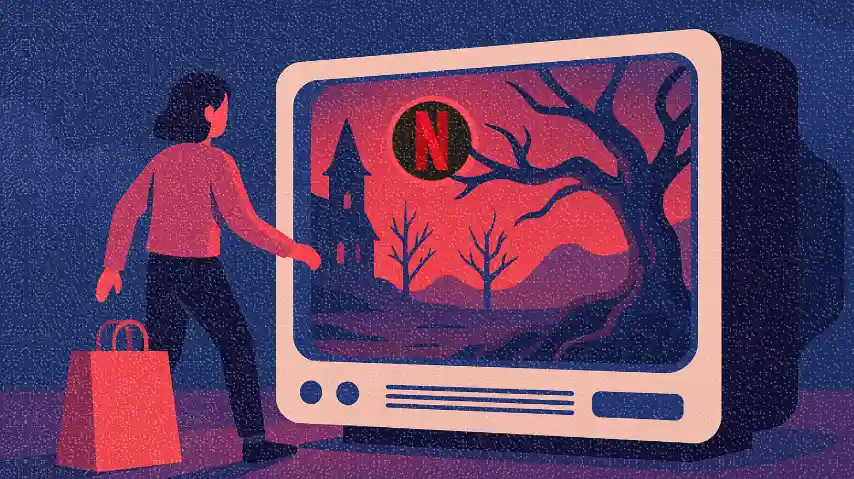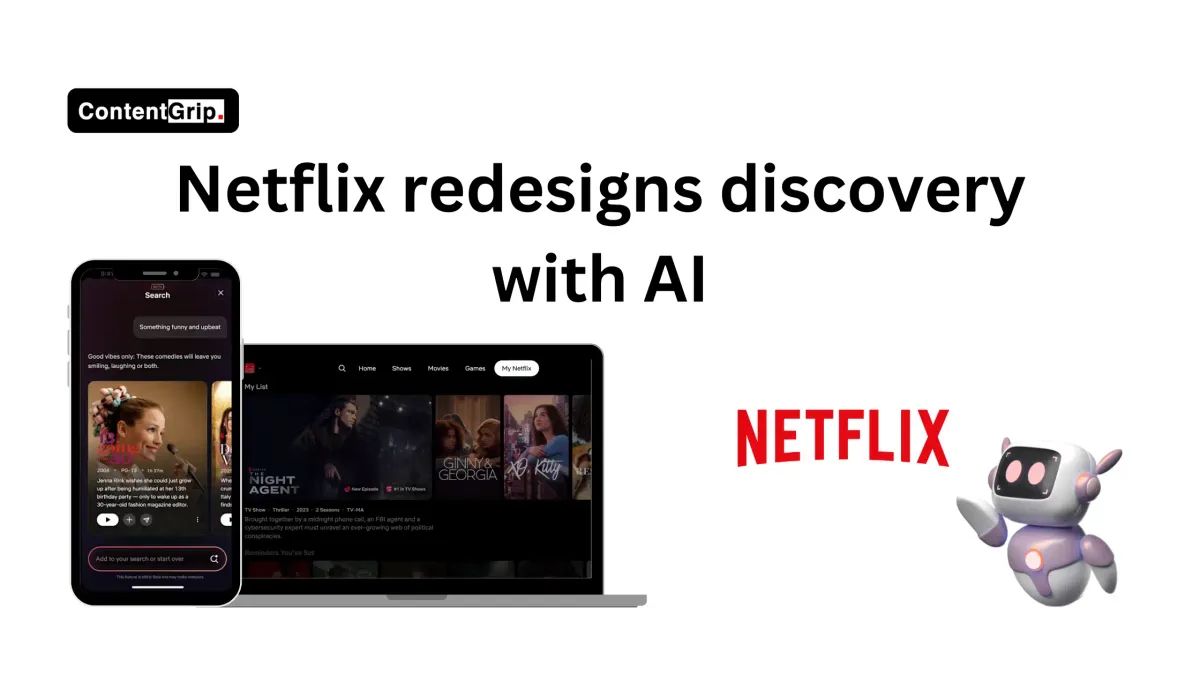Netflix lets brands step into its hit shows with AI: here’s what marketers should know
Netflix's new modular AI ad formats put brands directly inside shows like Stranger Things.

At its third-ever upfront event, Netflix showed just how far it’s willing to go to win over advertisers—and the results are surreal in the best way.
Lily Collins, in character as Emily Cooper, made a pitch. Roger Goodell dressed like Santa. And more importantly, the company rolled out AI-powered ad formats that put brands into the aesthetic world of Stranger Things and Wednesday.
This article explores how Netflix’s new modular adtech format works, why it’s a big deal for marketers, and what strategic shifts might be in store for brands seeking deeper integrations without the creative lift of traditional product placement.
Short on time?
Here’s a table of contents for quick access:
- Netflix’s AI ad formats turn shows into branded canvases
- A new modular framework for ad innovation
- NFL Christmas games return—with brand hooks
- What marketers should know

Netflix's AI ad formats turn shows into branded canvases
Netflix Ads President Amy Reinhard used the platform's upfront to make two things clear:
- The company is taking adtech seriously
- Brands now have new, easier ways to align with Netflix’s original IP
The company announced it had reached 94 million monthly active users on its ad tier globally, with an average of 41 hours spent per month on Netflix. These numbers are part of Netflix’s broader effort to standardize audience measurement and give advertisers more transparency.
The headliner: Netflix unveiled a new AI-powered modular framework that allows marketers to “step into” the narrative worlds of Netflix hits like Stranger Things, Wednesday, and Emily in Paris.
Think backgrounds, visual motifs, and iconography—not awkward cutaways to product shots.

A new modular framework for ad innovation
What Netflix is offering goes beyond traditional product placement. The company will use its vast library of visual assets to generate branded formats that feel native to the series aesthetic. It’s not about filming a bespoke brand scene—it’s about AI-powered contextualization.
According to Reinhard, the modular system makes it easier to test, iterate, and personalize creative for different industries. So a car ad won’t look like a CPG ad—and both will have access to visual environments pulled from fan-favorite shows. This means less manual lift and more scalable, fast-turn creative experimentation.
Netflix plans to test dozens of these formats with partners by 2026, aiming for personalized, industry-specific creative that adapts to campaign goals. In a fragmented media environment, the ability to tailor visual ad formats at scale could become a meaningful advantage.
NFL Christmas games return, with brand hooks
Netflix also used its upfront to confirm its NFL Christmas slate: Dallas Cowboys vs. Washington Commanders and Minnesota Vikings vs. Detroit Lions.
With more lead time this year, the company plans to build even stronger brand integrations into the broadcasts, following last year’s success—dubbed internally as the “Beyoncé Bowl.”
And yes, Commissioner Roger Goodell showed up in a Netflix-branded Santa jacket to help announce the matchups, driving home the entertainment-meets-sports hybrid Netflix is gunning for.
What marketers should know
Netflix’s ad strategy isn’t just about expanding inventory—it’s about reinventing the format. Here’s how marketers can make the most of it:
1. Experiment with narrative-driven branding
If your product fits naturally into a narrative aesthetic (fashion, tech, snacks, travel), the new AI-powered formats could be a low-lift way to create high-impact placements. Think: Cheetos in the world of Wednesday.
2. Build creative around modular systems
Netflix’s framework allows for versioning across formats and industries. Marketers should prepare modular creative assets that can slot into various campaign environments and be tailored to Netflix’s evolving format specs.
3. Understand the metrics behind the hype
Netflix emphasized that its 94 million MAUs are based on profile-level data—not household multipliers. For marketers, this means better alignment with performance metrics and audience reach across devices and contexts.
4. Integrated campaigns are still selective
While Netflix’s new adtech enables faster access to show-based branding, full co-branded campaigns like the one teased with Cheetos still require high alignment. Netflix is being picky—and marketers should be ready with culturally sharp, brand-safe creative.
Netflix is betting big on adtech, modularity, and AI to redefine what brand placement can look like in a streaming-first world.
For marketers, this presents an exciting—and scalable—opportunity to tie brand stories to pop culture IP without the complexity of traditional integrations.
The key will be creative agility and smart measurement.





